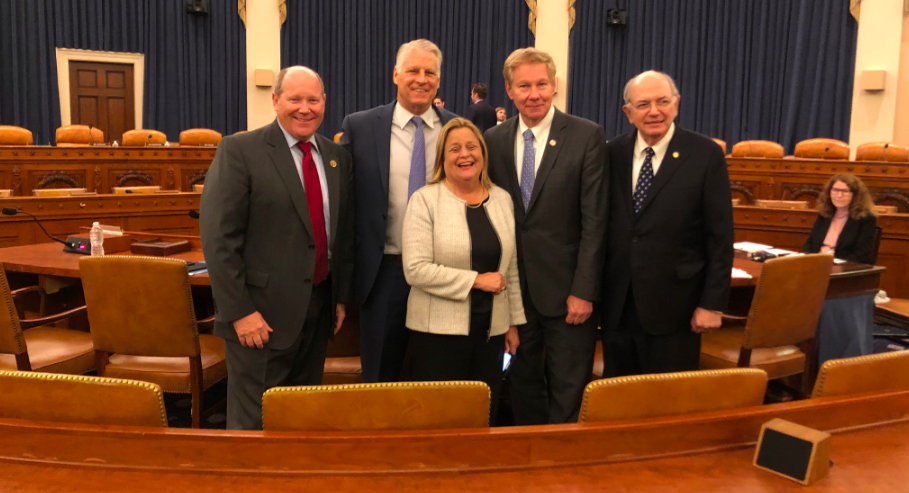This week, six former elected lawmakers — all part of Issue One’s ReFormers Caucus — returned to Congress to offer very candid words of wisdom about how to fix Capitol Hill to the Select Committee on the Modernization of Congress.
Their advice included increasing resources and leadership pipelines for career congressional staff; establishing programs for rank-and-file members of Congress to build relationships across the aisle; overhauling the committee system; and reducing the impact fundraising has on leadership positions and legislative decisions in Congress.
The six former lawmakers included ReFormers Caucus Co-chair, Amb. Tim Roemer (D-IN), Reps. Reid Ribble (R-WI), Ileana Ros-Lehtinen (R-FL), Tom Davis (R-VA), Vic Fazio (D-CA), and Martin Frost (D-TX) — who were also heads of the Republican and Democratic congressional party committees (NRCC and DCCC, respectively).
Here are seven noteworthy moments from the hearing – but it is worth watching in full.
- Capitol Hill has crippled itself. Davis said, “Lobbyists play an important role,” but noted that without the right expertise in the halls of Congress, lawmakers find themselves unable to keep up with the Executive Branch or special interests knocking on their door. There was unanimous agreement amongst all the former members to change that.
- Bring back the nerds (and give them more resources)! Multiple former members of Congress testified about the need for Congress to get smart quick, whether it’s bringing back the Office of Technology Assessment, or increasing the capacity of the Government Accountability Office or Congressional Research Service.
- The committee system is broken. There was agreement that often members serve on too many committees and don’t develop relevant expertise. Instead, they use them to raise money and run for re-election. The idea of members of Congress electing committee chairs — just as the Speaker of the House is — was raised.
- Congress needs to prioritize the public – not cash. “Americans think lobbyists, special interests, and donors are all in line before the regular person” on Capitol Hill, Roemer noted. He laid this directly at the feet of lawmakers and the political parties making raising money the top priority every day.
- Members choose to retire for all the wrong reasons. The top three reasons these former members retired? Redistricting, their votes being controlled by party leaders, and the term limits set on their committee chairmanships. Fazio joked, “I was in a district made for the other party. I spent millions three elections in a row to keep it. Then I thought I should give it back to the party it was drawn for.“ (All of these broken features are fixable if Congress has the will.)
- Leadership PACs need to go. Ribble said that leadership PACs (which he noted need to be abolished) were simply one more tool that turned money into a cudgel against lawmakers.
- Bring back the Pages. Many members and staff were pages at one point – including Tom Davis – and were inspired to choose careers in public service because of the program. “We abolished the program because members did something wrong, not because pages did,” he added.
For background: The modernizing committee is the first such select committee to focus on fixing Congress since the early 1990s. It is comprised of 12 members of Congress — six Republicans and six Democrats — appointed by the speaker and minority leader, two each of whom came from the House Administration and Rules committees, as well as two freshman lawmakers. It has one year to “investigate, study, make findings, hold public hearings, and develop recommendations on modernizing Congress” which then must be approved by two-thirds of its members.
To learn more, read the testimony from members before the modernizing committee.
For future updates, follow Issue One and the Modernizing Committee on Twitter.



